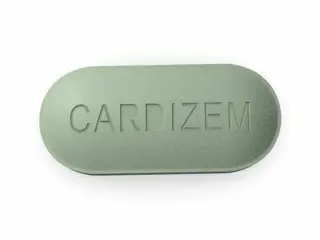| Package | Dosage | Price | Price per Dose | |
|---|---|---|---|---|
| Dosage: 30mg | ||||
| 360 pill | 30mg | £207.81 | £0.58 | |
| 270 pill | 30mg | £163.57 | £0.61 | |
| 180 pill | 30mg | £116.24 | £0.65 | |
| 120 pill | 30mg | £86.41 | £0.72 | |
| 90 pill | 30mg | £69.95 | £0.77 | |
| 60 pill | 30mg | £50.40 | £0.83 | |
| 30 pill | 30mg | £26.74 | £0.90 | |
| Dosage: 60mg | ||||
| 360 pill | 60mg | £284.97 | £0.79 | |
| 270 pill | 60mg | £217.07 | £0.80 | |
| 180 pill | 60mg | £146.08 | £0.81 | |
| 120 pill | 60mg | £99.78 | £0.83 | |
| 90 pill | 60mg | £79.21 | £0.87 | |
| 60 pill | 60mg | £54.52 | £0.92 | |
| 30 pill | 60mg | £29.83 | £0.98 | |
| Dosage: 90mg | ||||
| 360 pill | 90mg | £421.80 | £1.17 | |
| 180 pill | 90mg | £220.15 | £1.22 | |
| 120 pill | 90mg | £149.17 | £1.24 | |
| 90 pill | 90mg | £117.27 | £1.31 | |
| 60 pill | 90mg | £82.29 | £1.37 | |
| 30 pill | 90mg | £44.23 | £1.47 | |
| Dosage: 120mg | ||||
| 360 pill | 120mg | £467.07 | £1.30 | |
| 270 pill | 120mg | £358.01 | £1.33 | |
| 180 pill | 120mg | £244.84 | £1.36 | |
| 120 pill | 120mg | £170.77 | £1.42 | |
| 90 pill | 120mg | £134.76 | £1.49 | |
| 60 pill | 120mg | £95.67 | £1.59 | |
| 30 pill | 120mg | £59.66 | £1.99 | |
| Dosage: 180mg | ||||
| 270 pill | 180mg | £511.31 | £1.89 | |
| 180 pill | 180mg | £349.78 | £1.94 | |
| 120 pill | 180mg | £235.59 | £1.97 | |
| 90 pill | 180mg | £186.20 | £2.07 | |
| 60 pill | 180mg | £131.68 | £2.20 | |
| 30 pill | 180mg | £72.01 | £2.41 | |

Diltiazem Description
Overview of Diltiazem
Diltiazem is a medication classified as a calcium channel blocker, which is primarily used to treat various heart-related conditions. It works by relaxing the muscles of the heart and blood vessels, leading to a decrease in blood pressure and relief from chest pain. Due to its ability to regulate heart rate and improve blood flow, diltiazem is commonly prescribed for angina, hypertension, and certain types of arrhythmias. Its effectiveness and safety profile have made it a popular choice among both cardiologists and patients seeking long-term management of cardiovascular issues.
How Diltiazem Works
The drug acts on the calcium channels in the cell membranes of the cardiac and smooth muscle tissues. By blocking these channels, diltiazem reduces the influx of calcium ions, which are essential for muscle contraction. This action results in vasodilation, or the widening of blood vessels, which lowers blood pressure. Additionally, it moderates the electrical conduction system of the heart, helping to stabilize abnormal heart rhythms and reduce the workload on the heart. This dual mechanism makes diltiazem versatile in managing both hypertension and anginal symptoms.
Usage and Dosage
Dosage of diltiazem can vary depending on the condition being treated, the patient's age, and their overall health. It is often prescribed as extended-release tablets, taken once daily, or in immediate-release forms that might require multiple doses per day. Patients are advised to follow their healthcare provider's instructions carefully and not alter the dose without consultation. Consistency in taking the medication helps maintain stable blood levels, leading to better symptom control and reduced risk of adverse effects. It is also recommended to monitor blood pressure regularly while on diltiazem therapy.
Possible Benefits
Many users report significant relief from chest pain and improved blood pressure control with diltiazem. Its ability to slow the heart rate can also provide additional benefits for those experiencing certain arrhythmias. Patients often notice an improvement in their overall cardiovascular health and increased physical activity tolerance. because it helps reduce the strain on the heart, diltiazem has a reputation for improving quality of life in individuals with chronic heart conditions. When used correctly, the medication can be an essential part of ongoing heart disease management.
Potential Side Effects
While generally well-tolerated, diltiazem can cause side effects in some individuals. Common adverse reactions include dizziness, headache, swelling of the ankles or feet, or flushing. More serious, but less common, effects might involve irregular heartbeat, allergic reactions such as rash or swelling, or liver function abnormalities. Patients should promptly report any unusual symptoms to their healthcare provider. Regular monitoring can help detect and manage side effects early, ensuring the medication's benefits outweigh the risks.
Precautions and Interactions
Before starting diltiazem, it is essential to inform your healthcare provider about any other medications you take, including over-the-counter drugs and supplements. Diltiazem may interact with certain medications such as beta-blockers, other antihypertensives, or drugs affecting liver enzymes. Patients with existing heart failure, low blood pressure, or liver issues should exercise caution and may require dosage adjustments. Pregnant or breastfeeding women should consult their doctor before using diltiazem to weigh potential risks and benefits. Proper medical supervision ensures safe and effective use of this medication.
